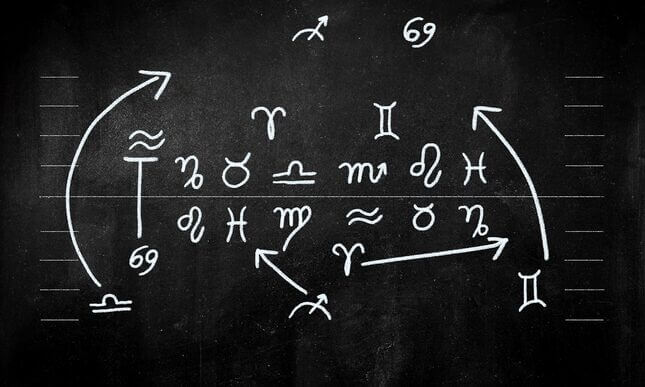America's Greatest Insufferable Pastimes Are Astrology and Fantasy Football
Latest

This fall, two great phenomena have disturbed our friends and neighbors. The generally reliable type (or steady flakes, now validated) are suddenly loudmouths, blustering and making excuses: one group because a planet appears to be moving backwards but isn’t actually, and the second because they’re consumed in a game of time-sucking make-believe. What’s gotten into everybody? And, more importantly, who is more insufferable, the people who bitch about planets as though they’re frenemies, or those who face-palm over football players as if they were prodigal sons?
Football season, and by extension, fantasy football season, kicked off in early September. Mercury retrograded itself a couple weeks later. And thus came the perfect storm of obsessives, ranting about imaginary things that no one cares about except them (and of course, there are a lot of them). Astrology buffs and fantasy heads are alike in their tendency to become embroiled tracking planets or players, studying predictions or projections, immersed in a world of hypotheticals that doesn’t mean much to anyone else.
After spending so much (unintentional) time around fantasy fanatics and Mercury Retrograde broken records, the pastimes start to seem parallel as exercises in the limits of personal agency—a grab for and abdication of control. When you believe in astrology, how much of what happens to you is because of you, or because it’s written in the stars? When you’re a fantasy team owner, do you do well because you did your homework and started the best player, or because your opponent’s running back got injured?
Writer Josh Keefe, the worst high school quarterback ever (who admits he is “also pretty mediocre at fantasy football” although the difference is he actually wins some of those matches) had some things to say about similarities between the two.
“No matter how much you research or know about either fantasy football or astrology, it doesn’t actually mean anything and that knowledge will do little to affect your performance,” he wrote to me in an email. “Fantasy football seems to me, at least above a certain basic knowledge threshold, pretty much luck. I say this, however, because I’m 2-2 right now. If I was 4-0, I would probably be willing to give skill and/or preparation a greater share of responsibility for the outcome. When shit happens to me, it’s fate, or the stars, or the inscrutable nature of NFL injuries. But when I have success, it’s due to my choices and actions and roster moves.”
And maybe that’s the divide that’s built into our self-aggrandizing nature: we are happy to acknowledge our own actions when things are going well, but when we spill wine on our laptop or our team doesn’t perform, there must be forces out of our control at work.
Fantasy team owners (ones that are winning, at least) certainly argue there is plenty of strategy involved, studying weekly projections to decide which players to start or sit, with the option to trade guys with anybody in your league, or pick up a free agent. The current Draft Kings scandal certainly illustrates that insider knowledge does produce better results. But in fantasy, even if you read columns from all the top analysts and consult every cheat sheet you can find, you’ll still never be able to prepare for what might befall your players—who are living, breathing athletes behind their PRKs—in any given week. In a similar way, you’re stuck with your lot in the zodiac: you can’t trade Leo for Scorpio if you’re not feeling your horoscope one week (although we don’t seem too far from a fantasy astrology league, to be honest). All you can do is make adjustments based on the heads-up you’re given.
Eric Dougherty, a PHD candidate at UC Berkeley’s school of Environmental Science, Policy and Management, nerds out to fantasy not just because he’s a Jets fan and it gives him “a way of escaping from watching a constantly losing team,” but also because the mechanism of making projections for what a player will do in any given match up is not so different from his academic work modeling wildlife populations over time. He frequents fantasyfootballanalytics.com, where stat heads use r scripts to compile and analyze projections from a host of different fantasy sites to try to arrive at the most accurate bet.
But, though he’s attracted to the number crunching, the variables are fantasy’s real draw. He told me about how the concept of stochasticity, or inherent randomness, “anything from a player waking up with a tummy ache or having a grudge against a defensive back going back to their days at rival colleges that may influence their performance that day” factors into the fantasy game. He said there’s ways to account for it in the math, but “at some point there is just so much randomness that nobody in their right mind would attempt to model it all.” And then he concluded his email to me with, “I don’t think I’ve ever written so much about anything more meaningless in my life.”
-

-

-

-

-

-

-

-

-

-

-

-

-

-

-

-

-

-

-

-

-

-

-

-

-

-

-

-

-

-

-

-

-

-

-

-

-

-

-

-








































